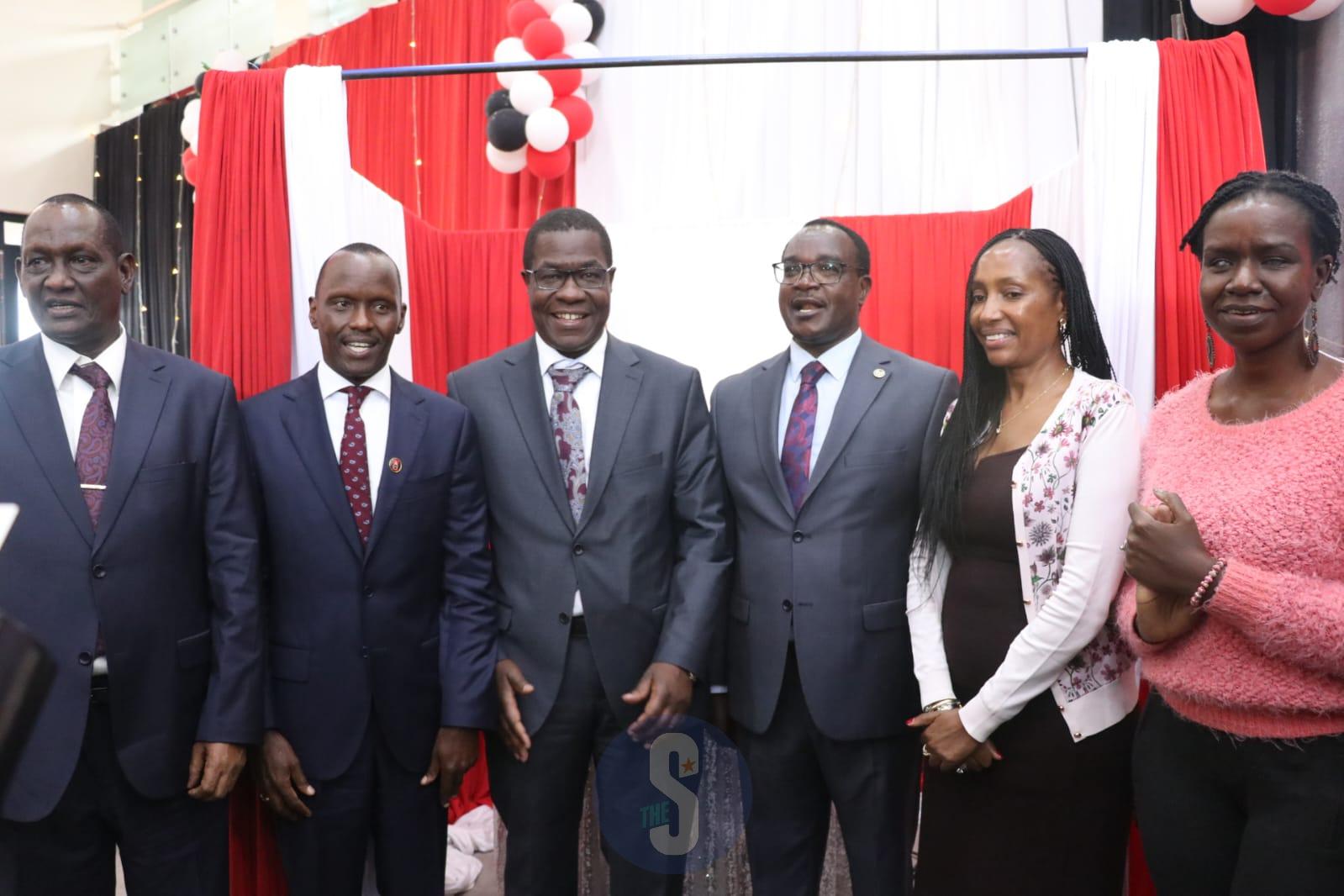
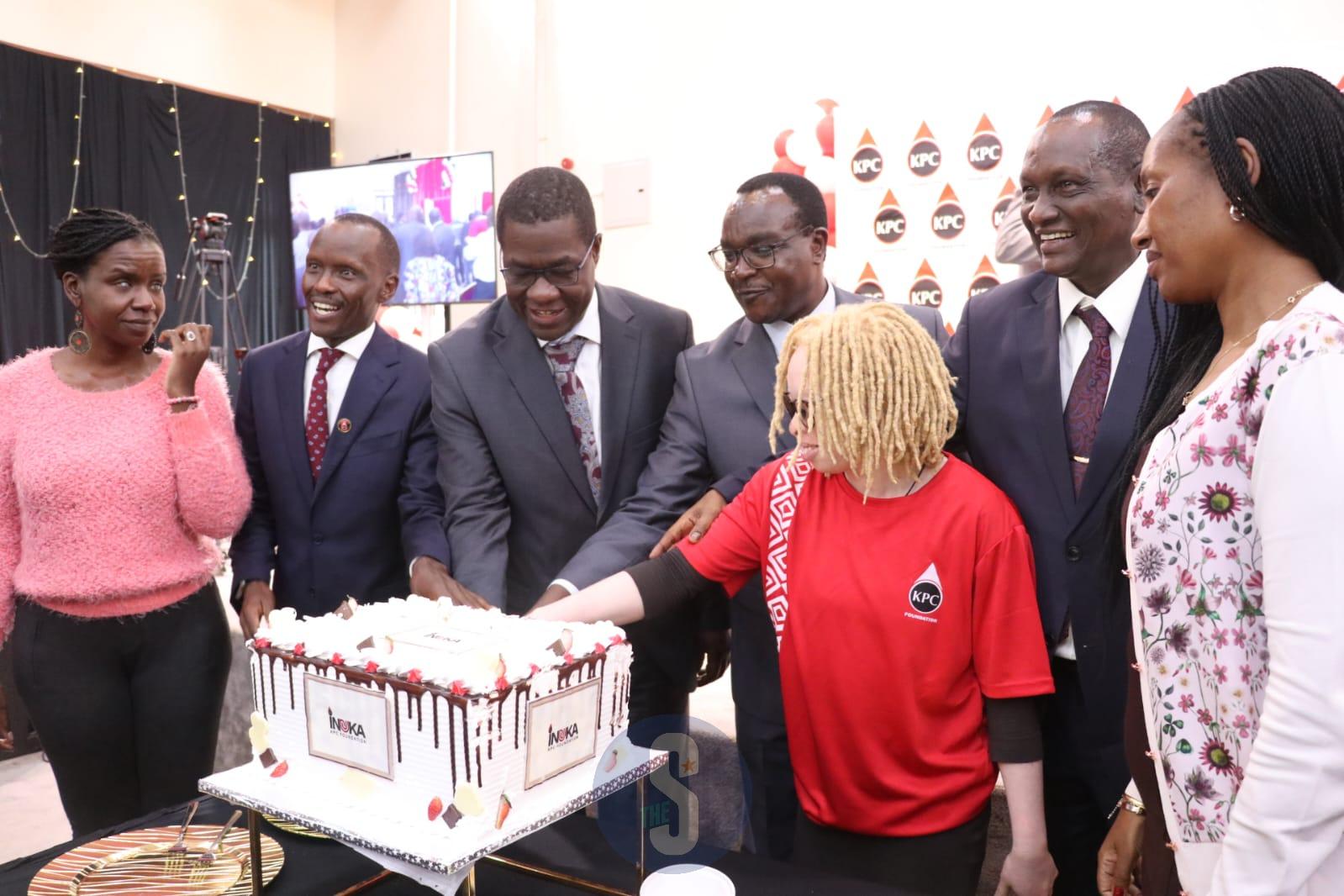
At just 21, Caroline Mwangi is on the cusp of becoming a lawyer. It is a dream she has chased since childhood, fuelled by a desire to speak for the voiceless and inspired by trailblazers like Justice Mumbi Ngugi.
Her journey has, however, not been easy. It is like she was born into a world that was not quite ready for her. Born with albinism in a community still grappling with acceptance, Mwangi faced rejection, whispers and doors closed before they ever opened.
And, as if this was not enough, another “cruel” family tragedy in 2019 almost derailed her future, threatening her education and shaking her world.
“The incident was not a good one. It was a very cruel one for our family, but we were able to navigate through,” she says, her face beaming with hope.
But, against the odds, she rose, scoring an impressive A- in her final high school exams, just a year after the life-altering event.
“It was a moment of anxiety, after backlash in everything from family to concentration on your studies.”
Behind her triumph stands the Kenya Pipeline Company Foundation whose support carried her through four years of high school and lit the path to university.
Today, as she approaches the final semester of her law degree at the University of Nairobi, her story and that of other beneficiaries is not just one of personal success but a testament to resilience, mentorship and the ripple effect of hope.
In an interview, Mwangi took us through her journey from family background to challenges she faced before KPC came to her support. With older siblings who also had albinism, she had a front-row seat to both quiet resilience and public misconception.
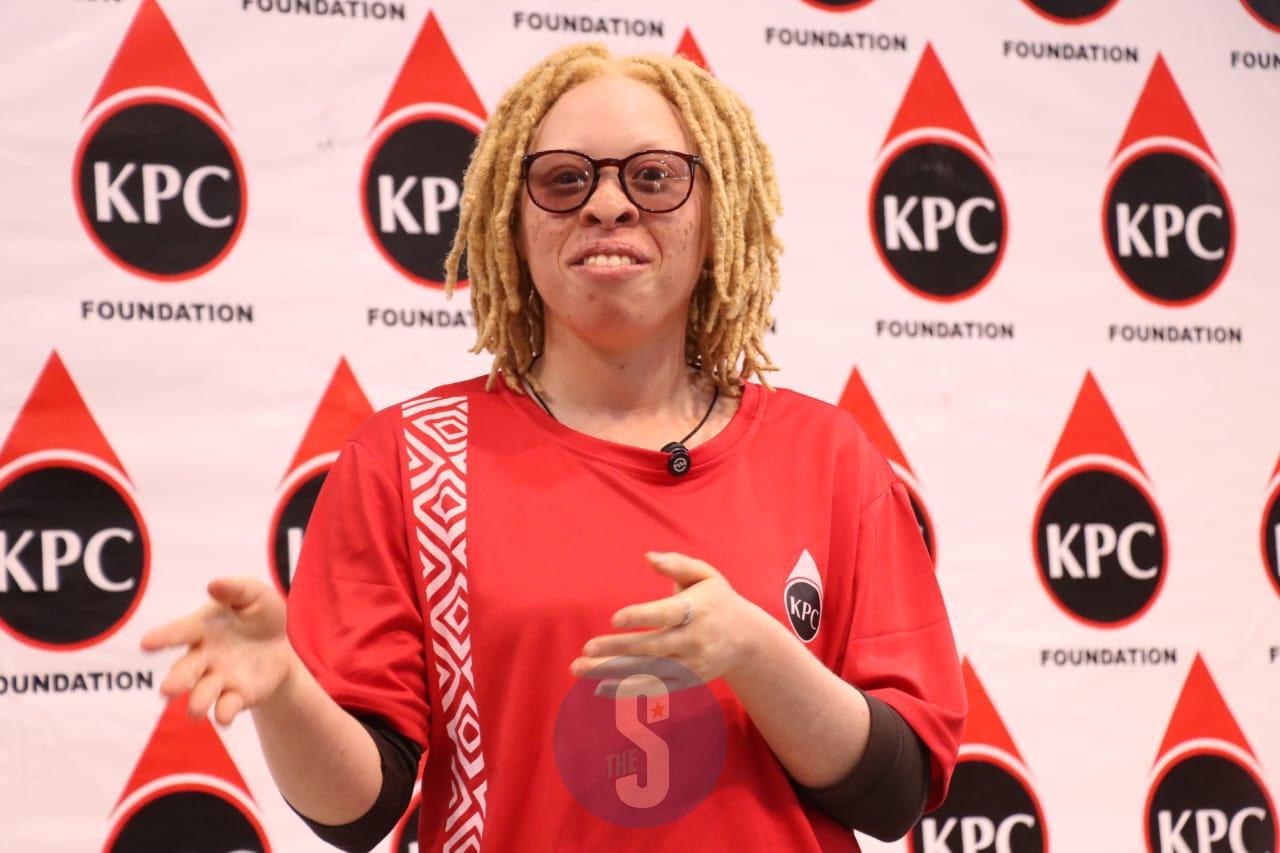
Her early education took place in a special school until Class 5, when a major turning point came when she had to transition into an integrated school system, a shift that was not just academic but also deeply emotional.
“I can say having to shift schools, because I was in a special school, was one of the hardest things,” she says. “I had to go and explain myself to everyone. The teachers did not understand my condition. They did not know how to handle me. But I was told, ‘You need to learn to coexist with others in the community’.” And even after overcoming social challenges, the question of access still loomed.
“When I got my primary school results, my mum was hesitant on allowing me to join Mahiga High School, where I had been called to. She said, no, you can’t go to a school where you won’t achieve your potential,” she says.
After consultations, Mwangi says her mother agreed that she join the school, and this was two weeks after everyone else had settled in. With the next big hurdle being school fees, she was not even sure if she would be accepted. “We were in talks with the principal when KPC came through just in time. They gave me the referral and the scholarship. From that point, I never had to stress about fees again.”
CAREER PREPARATION
Mwangi is now determined to become a voice for justice, equity and transformation in the very society that once doubted her.
“This is just the start. We are ready to mentor those behind us. We are more than able to create more stories,” she tells us in an interview in Nairobi.
Mwangi is among the pioneer group of the KPC Foundation Inuka scholarship programme that seeks to support these bright students living with disability to pursue their secondary education.
To date, the Foundation has sponsored 45 students from across the country, whose dreams of pursuing their dream careers would not have been possible with the support.
The results now speak now volumes. Last year alone, 47 per cent of the beneficiaries achieved university entry grades, a testament to the resilience of these children.
Apart from the tuition fees, beneficiaries are also provided with uniforms and other essential school needs.
During the official launch of the programme, KPC also introduced an annual mentorship programme for Inuka scholars.
The initiative, KPC managing director Joe Sang said, will provide guidance, life skills and career preparation for more than 370 students.
It is about equipping these young minds not only to succeed academically but also to lead fulfilling lives, he said.
Mwangi is, however, not the only with a story to tell about their journey to getting the opportunity to pursue their careers.
Among the top performers in the 2024 KCSE examinations are Levy Kabesa, Monica Isabwa and Allan Kwambai, young trailblazers now preparing to join university and pursue the careers of their dreams.
But behind their academic brilliance lie stories of resilience, sacrifice and relentless determination. For 21-year-old Levy Kabesa from Nyamira county, the journey to academic excellence was anything but easy. Born visually impaired in a family of five, Levy’s path to success was lined with uncertainty. His parents, hardworking but struggling to make ends meet, were already stretched thin, especially with another child in the family living with the same disability.
“My chances of going beyond primary school were almost nonexistent,” Levy recalls.
“We did not know where the school fees would come from.”
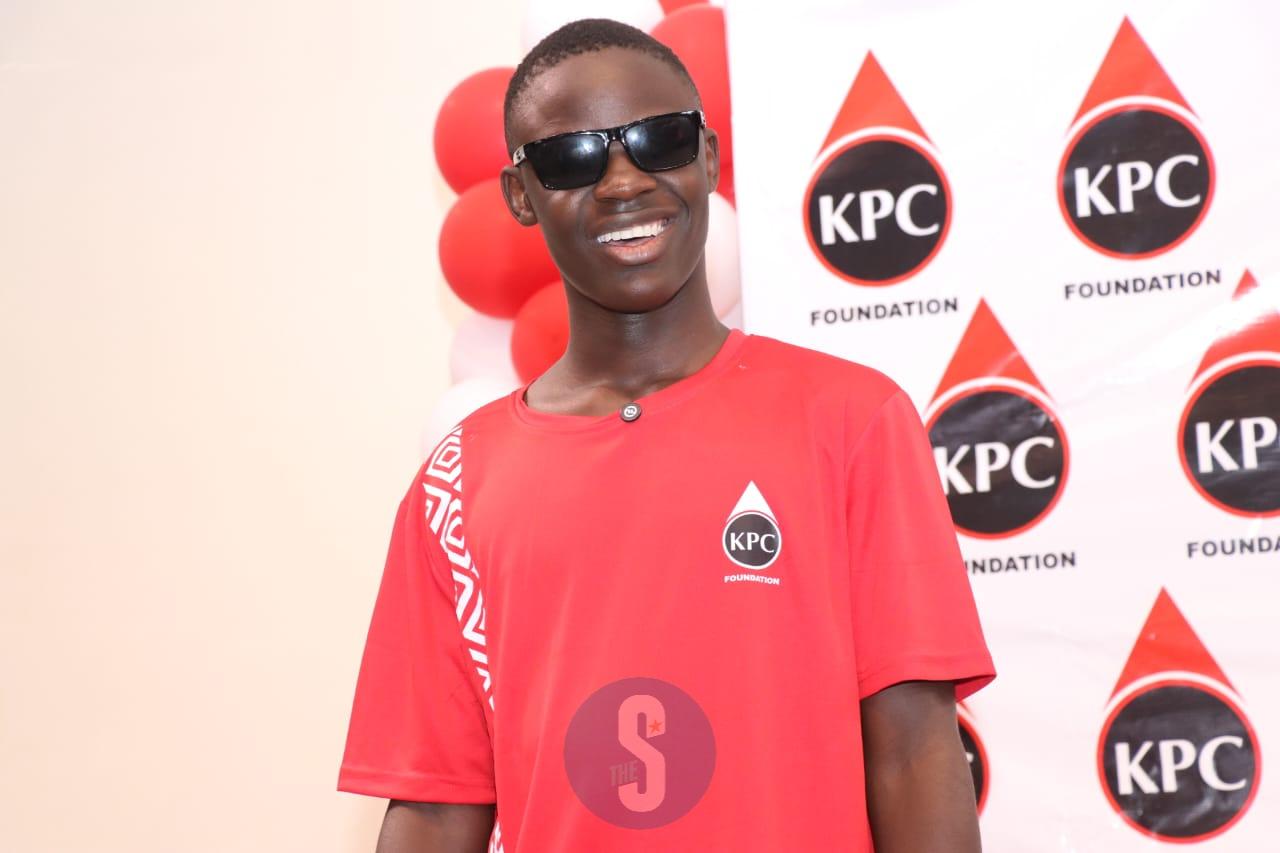
His education took a turbulent path, starting at Kegogi Primary School until Class 6, then transferring to another school to complete classes 7 and 8. But it was after completing his KCPE that his academic journey took a hopeful turn thanks to the support from KPC.
Kabesa joined Thika School for the Visually Impaired, where he thrived despite the challenges and scored an impressive A (plain) in the national exams. “I have always held on to the dream of one day coming back home, successful, and lifting up my family,” he says with quiet confidence.
He is now set to join Kenyatta University to pursue a degree in law, a choice inspired by his desire to fight for justice and defend marginalised communities.
“My motivation to study law comes from my experiences. I want to break societal barriers and speak up for those who are too often overlooked.”
INCLUSION CHALLENGE
Another inspiring story is that of Kenneth Munene, a computer science student at the Jomo Kenyatta University of Agriculture and Technology and a proud beneficiary of the Inuka Plus scholarship programme.
Munene, who lives with a mobility impairment, moved an entire audience to tears during the event in Nairobi as he narrated the battles he has faced. Battles not just with his condition but with a society that often forgets to accommodate the needs of persons with disabilities.
“Inclusion has always been the biggest challenge,” he said. “When I joined Moi Forces Academy, there were no ramps or structures for students with mobility challenges.”
He and one other student with similar needs struggled daily until a compassionate cook took it upon himself to fashion a makeshift ramp from metal sheets.
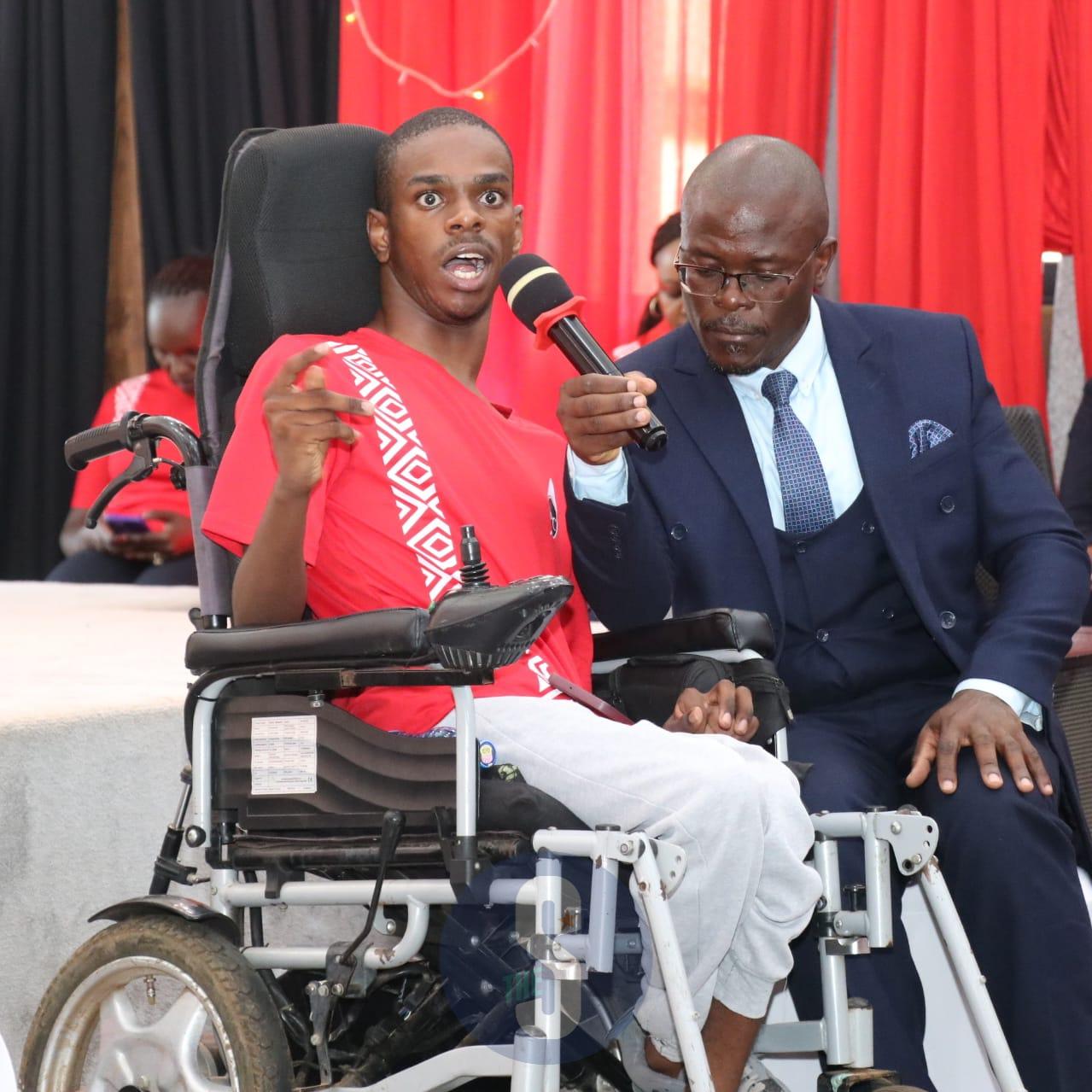
“This small act of kindness changed everything. The school management took notice and began constructing proper ramps,” he says, thanking KPC for coming to his aid as he urged other well-wishers to be considerate to the disabled.
Now, Munene is not only thriving in his studies but is determined to use his tech skills to design inclusive solutions for future generations.
Esther Ngetha, a caregiver from Rev Muhoro Secondary School For The Deaf in Mukurweini, Nyeri, appreciates the role played by the Foundation in ensuring these students access education.
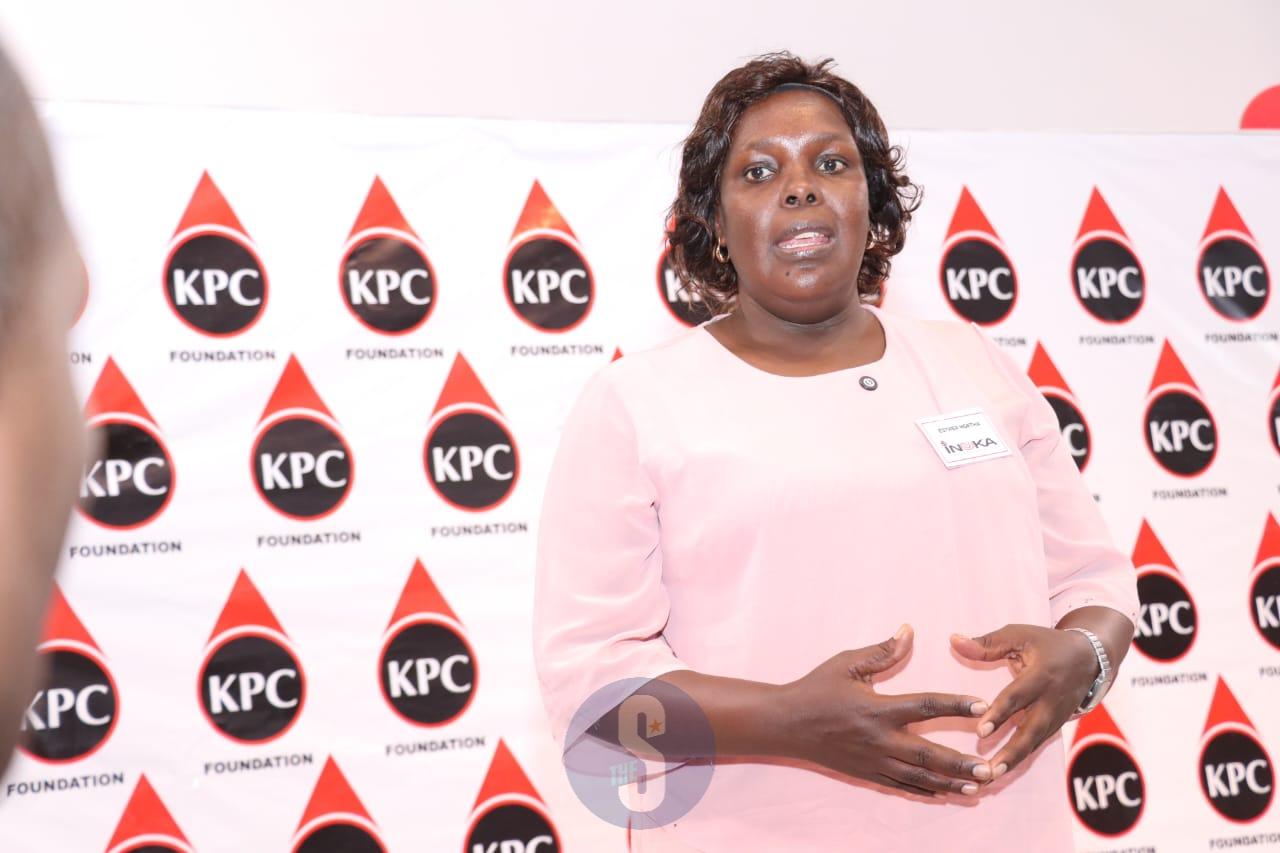
KPC, through the Inuka programme, currently sponsors nine students from the school. She also called on other partners to join hands in supporting the children, saying they are quite a number across the country.
“As caregivers, we sometimes go through a lot of ups and downs in gathering for the needs of the learners. We have many children out there who require support,” she says.
Through the official of the programme, KPC urged other organisations and well-wishers to join hands in expanding so that more children are reached.
NO CHILD LEFT BEHIND
KPC Board chairperson Faith Boinett affirmed their strong commitment to the Inuka initiative.
She emphasised that no child should be held back by either financial or physical barriers.
In a speech delivered on her behalf by KPC Foundation Board of Trustees director Irene Wachira, she said education remains a “cornerstone for national progress”.
“We at KPC recognise the unique challenges students with disabilities face in accessing quality education,” Boinett said.
“That is why we have supported them through the Inuka Programme for the past eight years.”
She added that KPC is also committed to promoting inclusivity for persons with disabilities in employment, leadership and business opportunities.
Boinett said annually, KPC dedicates 1.5 per cent of the profit before tax, which is equivalent to Sh150 million, to community programmes.
“This success extends to the strong leadership and good governance from the board and management,” she said.
So far, KPC has invested Sh780 million in community development programmes, positively impacting more than 56,000 lives across the country.
The KPC Foundation, a registered charitable trust, has completed 377 projects in various sectors. It includes health, where 21 projects have been completed, benefiting 7,000 people, while in the water sector, some 113 projects have reached 35,600 individuals.
The company has also planted 480,000 trees, fenced 120 km of forest and created jobs for 2,465 youths under its environmental initiatives.
Under empowerment and livelihoods, 85 projects have uplifted 11,000 youth and women.
In the education sector, KPC has completed 150 infrastructure projects and awarded 745 scholarships to children with disabilities.
The Inuka programme launch was attended by Cabinet Secretaries Julius Ogamba (Education) and Opiyo Wandayi (Energy), Petroluem PS Mohamed Liban, KPC managing director Joe Sang.
Also present were nominated Senator for PWDs Crystal Asige, officials from the NCPWD and KPC board members. Ogamba praised the initiative for its commitment to empowering marginalised learners.
“I commend the KPC Foundation for its dedication to supporting students with disabilities through education,” the Education CS said.
“The Inuka scholarship programme has demonstrated that investing in skills development for these groups paves the way for meaningful, dignified lives.”
Wandayi challenged the youth to consider pursuing careers in the energy sector, more so in the nascent green energy, saying there are great opportunities to exploit.
Wandayi said the youth have opportunities to be solar technicians, wind turbine engineers and green energy entrepreneurs.
In his speech, Sang said, “This programme is not just about education; it’s about dignity, empowerment and breaking barriers.”
Asige said the Kenya Sign Language Bill has the potential to transform the education system and ensure the needs of those with disabilities are catered for.
